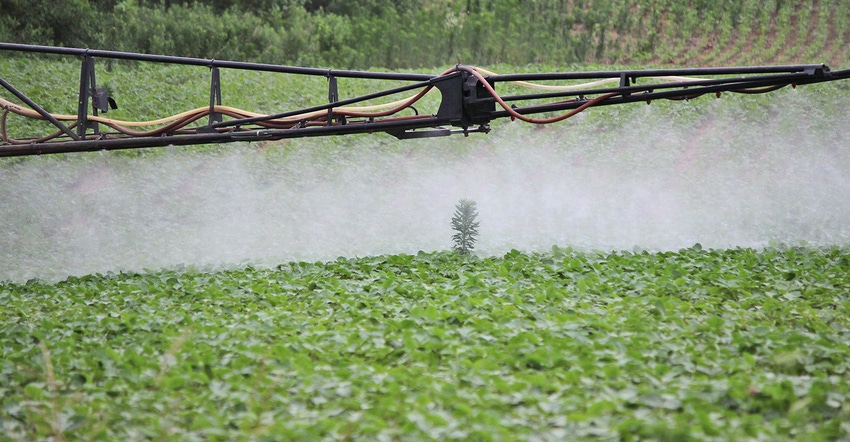
Missouri will not supersede the federal government requirements for use of Engenia, FeXapan and XtendiMax in the 2019 growing season.
Chris Chinn, Missouri Department of Agriculture director, made her decision not to pursue a 24C Special Local Needs labels after the Environmental Protection Agency’s decision to extend the registration of the three dicamba products for another two years for over-the-top applications. Chinn says it is a challenging task to balance the interest of producers from across the U.S. “We really feel like the EPA worked diligently with the registrants to make sure they are meeting the needs of all of the stakeholders involved for a balanced approach,” she says.
After reviewing roughly 120 pages, Chinn says some of the changes are similar to the state’s 24C Local Needs label in 2018. Because of that, she does not feel there is a need for any additional requirements, adding her department’s job now is to help farmers understand the labels approved by EPA for the three dicamba-based products.
Here are a few things farmers should know:
• Qualified applicators. Only certified applicators may apply dicamba over-the-top. Those working under the supervision of a certified applicator may no longer make applications.
• Spray deadlines. It prohibits over-the-top application of dicamba on soybeans 45 days after planting or up until the R1 growth stage first bloom, whichever is first. Over-the-top application of dicamba on cotton may not be made 60 days after planting.
• Limited applications. For cotton, the label limits the number of over-the-top applications from four to two. For soybeans, it remains at two.
• Application timing. Applications are allowed from one hour after sunrise to two hours before sunset.
• Watch out for wildlife. In counties where endangered species exist, the downwind buffer will remain at 110 feet. However, there will be a new 57-foot buffer around the other sides of the field. Note the 110-foot downwind buffer applies to all applications, not just in counties where endangered species may exist.
All new label instructions and requirements are covered in federally required dicamba or auxin-specific training.
Training changes
Applicators in Missouri are no longer mandated to complete training through the University of Missouri Extension to spray dicamba-based products in the state — a requirement set in place last year by the Missouri Department of Agriculture.
Under the federal labels for the 2019 season, applicators can complete training through Bayer, BASF and Corteva for their respective products. They may also complete it online through the University of Missouri Extension.
Whatever the choice, the new federal labels require training annually.
The EPA decision extends the labels for two more years, through Dec. 20, 2020.
About the Author(s)
You May Also Like






